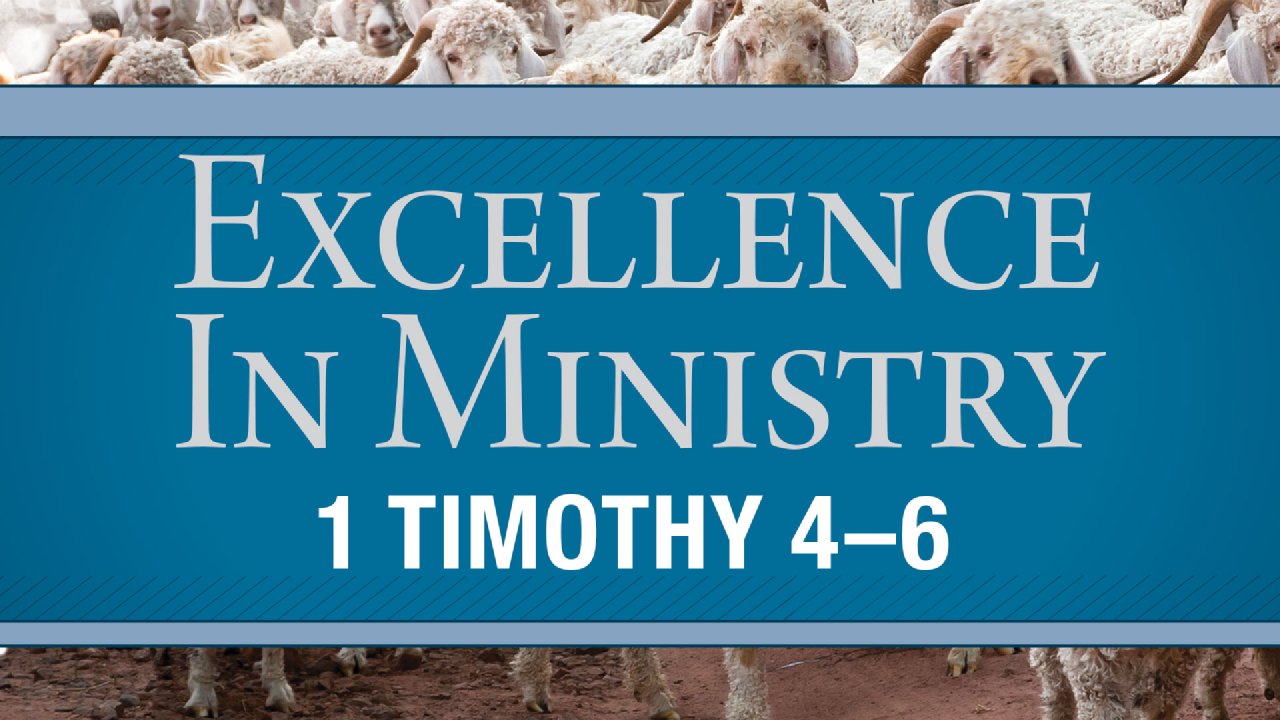Paul made clear the purpose of his first letter to Timothy: “So that you will know how one ought to conduct himself in the household of God” (1 Timothy 3:15). We've noted that ministry would be easier if everyone in the congregation pursued godliness. But it doesn't work that way. Some do, and some don't. Those who do, deserve our respect. And those who don't, deserve a rebuke. But how should the church go about respecting and rebuking the saints? What is appropriate and what isn't? Thank God He gave us 1 Timothy to answer these questions and serve as our guide.

Respecting and Rebuking the Saints
Message 3
Pastor Chuck Swindoll
Ministering Amidst the Crazies
Pastor Chuck Swindoll • 1 Timothy 4:1–6
We live in unusual times. Surrounded by a sea of cults, false doctrines, religious extremism, political polarization, and media madness, absolute truth seems like a lonely island—sparsely populated and uncharted on the cultural map. Of course where we find ourselves today should come as no surprise . . . at least not to those who've read their Bibles closely. Jesus and His apostles warned, more than two millennia ago, that the world would tumble down this rabbit hole, especially as the end of time draws near. Today, we live and minister amidst the crazies. And if you doubt it, just look around. This isn't your father's world anymore. So what are we to do? Bunch tightly in our holy huddles, hoping to keep the world at bay? Not on your life!
The Dos and Don'ts of Ministry
Pastor Chuck Swindoll • 1 Timothy 4:6–16
Let's see a show of hands. Who in their professional lives wants to be unsuccessful? No one, right? Most professions have a set of procedures—a list of dos and don'ts—that, if followed, promote success. Ministry is no different. Beginning in 1 Timothy 4:6 and continuing through the rest of the letter, Paul turns our attention to the one who seeks to be “a good servant of Christ Jesus,” namely, the minister. Paul starts off by outlining a list of dos and don'ts for effective ministry, focusing first on the pastor's personal ministry (1 Timothy 4:7-11) and then on the pastor's public ministry (4:12-16).
What about Widows?
Pastor Chuck Swindoll • 1 Timothy 5:3–16
For the individual follower of Christ, the single most practical book in the Bible is probably James. For the church, it's got to be 1 Timothy. And as we've seen throughout our study, Paul has practically left no proverbial stone unturned, addressing a wide variety of issues confronting the church. We've also seen that these issues are just as relevant in the twenty-first century as they were in the first century. But just when we think Paul has exhausted all important topics, he comes up with one more—how the church ought to treat widows (1 Timothy 5:3-16). What he said might surprise us.




